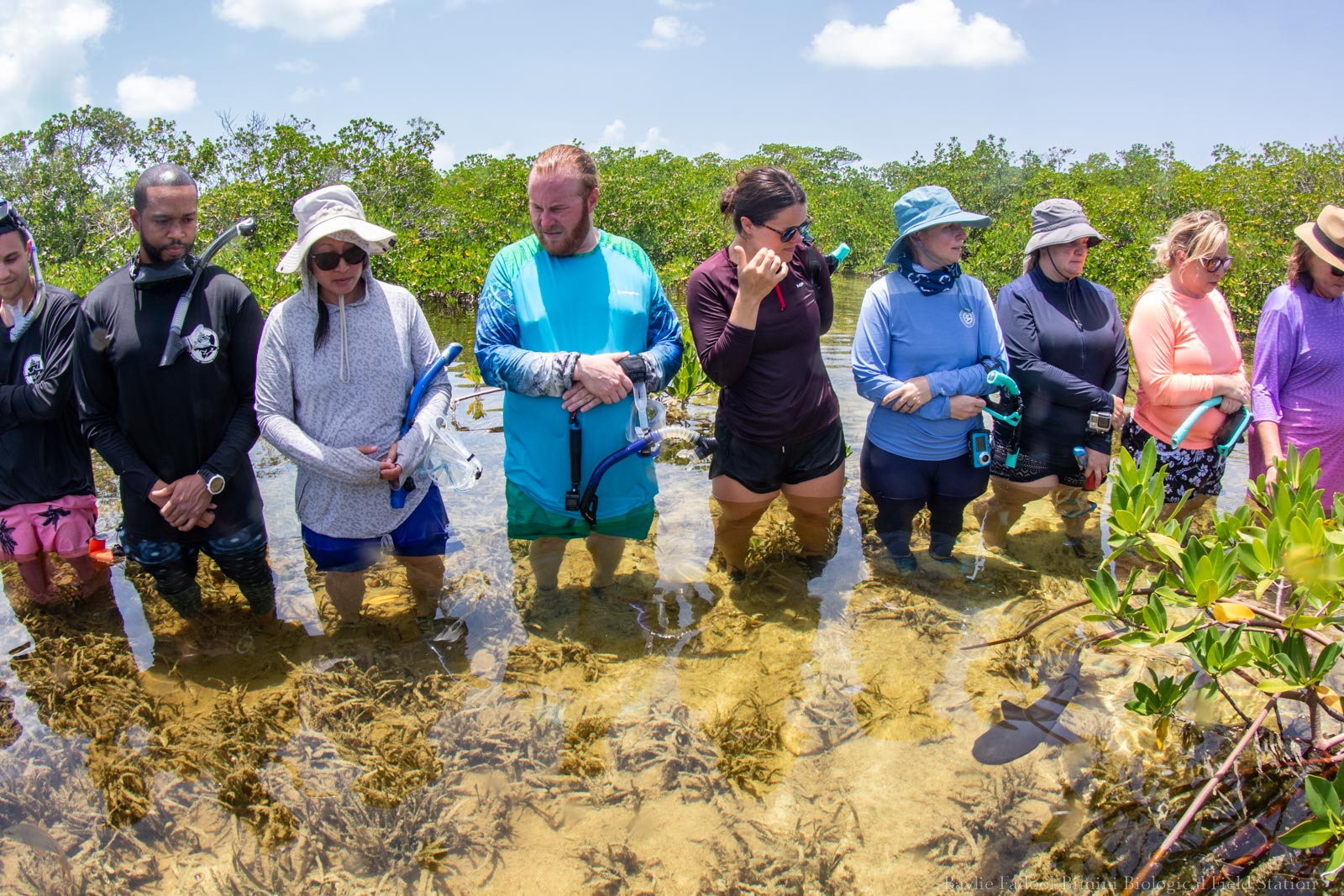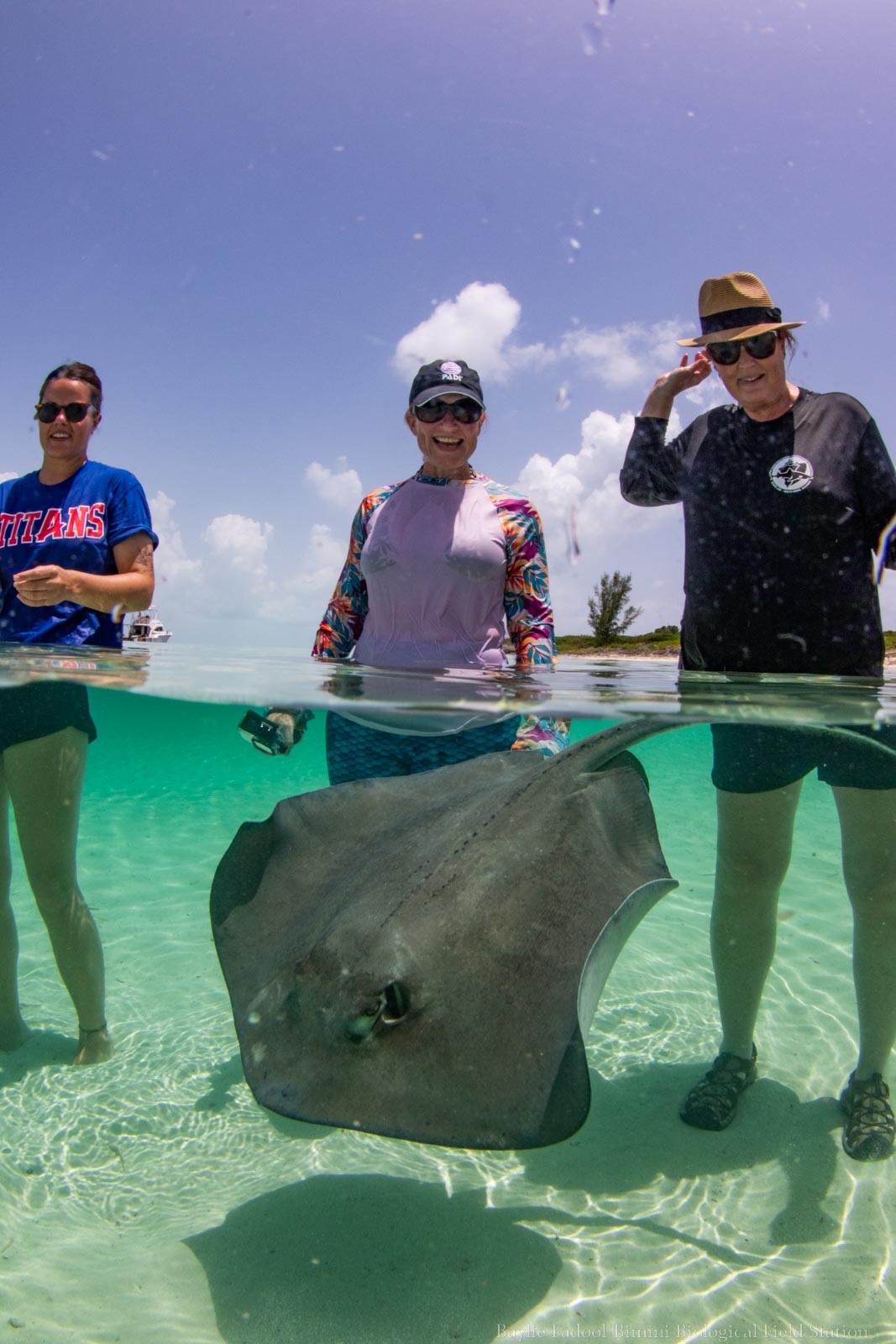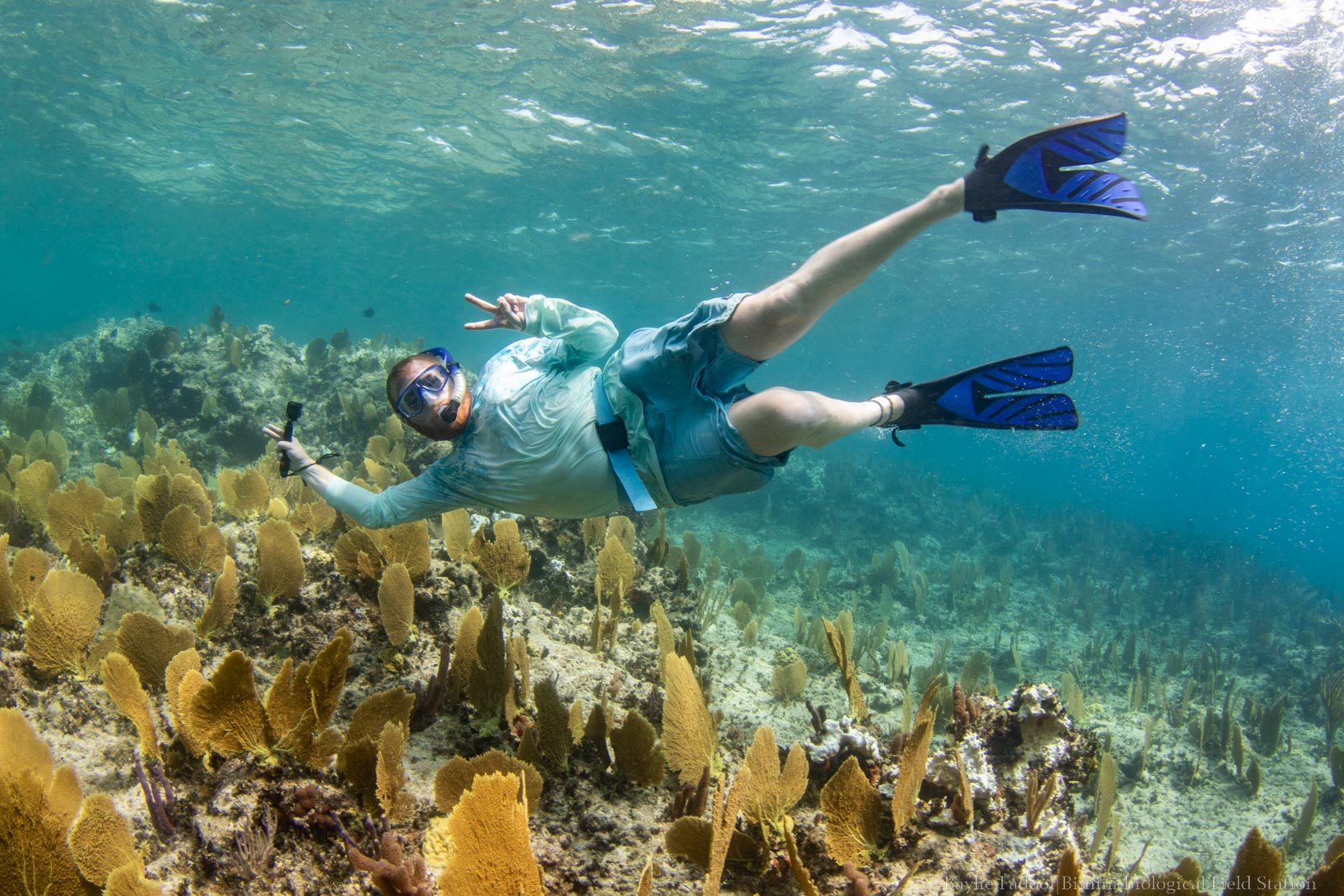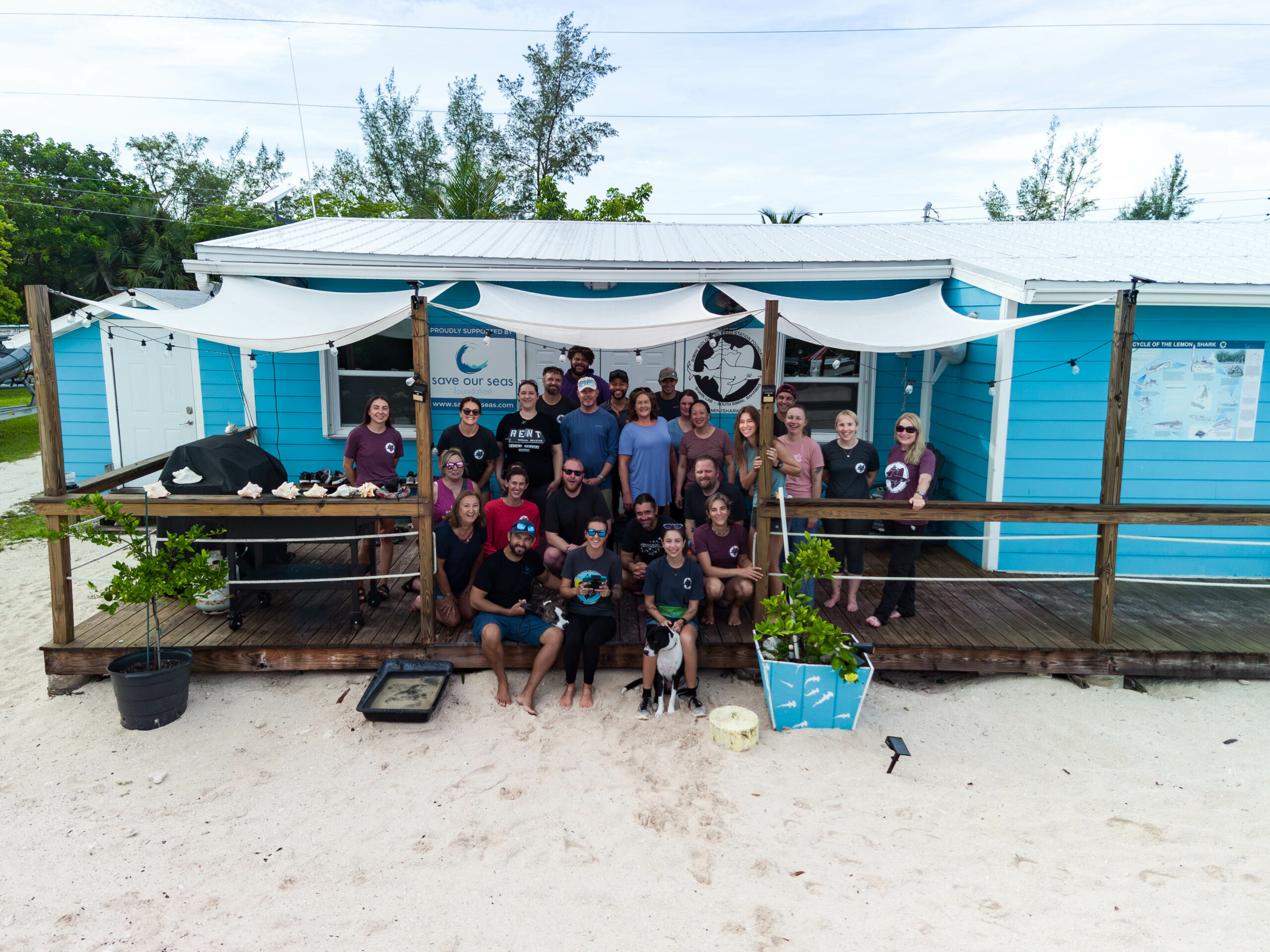Bimini Shark Lab Educator Shark Course
For the past three decades, a primary mission of the Bimini Biological Field Station Foundation (Bimini Shark Lab) has been to educate the next generation of marine conservationists and scientists. During this time, the Shark Lab has welcomed thousands of students to experience the unique marine ecosystems around Bimini. These students have the opportunity to learn about shark biology, conservation, research methods, and to visit sharks and rays in the wild. Many of these students have continued in science or conservation-based careers around the world, and thereby have expanded the BBFSF efforts for marine conservation. However, the issues facing sharks, and marine conservation are vast. There is a need to continually expand the overall reach of our educational programs and to maximize the number of students who benefit. During the Covid-19 pandemic the Shark Lab crew expanded our educational program using video platforms to provide remote lectures for school students from around the world. Through this connection with widely distributed teachers and educators, it became apparent that they desired more in-depth and field-based experiences to enhance their professional development. The Shark Lab has offered select field-based courses for educators in the past, and as the world emerged from the Covid travel restrictions it was an opportune time to expand these programs.

Educators wade with juvenile lemon sharks in the mangroves near Bimini. Photo © Baylie Fadool
In 2022, support from Save Our Seas Foundation allowed us to offer scholarships for an ‘Educator Shark Biology Course’ in Bimini. This focused on providing teachers and educators working in underserved communities and/or landlocked regions with an opportunity to connect directly to the ocean and marine habitats. As soon as it was announced, it was clear there was a monumental demand for this type of course, with more than 200 applicants applying for 14 scholarship positions. Building upon the success of the 2022 course, we again offered a course during the summer of 2023 welcoming an additional 15 educators from around the USA, Canada, and The Bahamas. The educators each received a full scholarship for a week-long course led by Dr. Dean Grubbs, Dr. Matt Smukall, and the Shark Lab team. The course includes lectures on the biology, taxonomy, and conservation of sharks and rays, as well as the research methods used to study these species. Lectures were accompanied by daily field trips in order to observe and interact with sharks and rays in the various ecosystems around Bimini. The immersive field trips were the first time some participants had swam in the open ocean or interacted with sharks.

Educators swim with stingrays near Bimini. Photo © Baylie Fadool
The feedback from educators has been overwhelmingly positive. The week-long trip serves as a venue for professional development, networking with other participants, and constructive brainstorming for curriculum improvement. They have continually commented on how this has been a transformative experience that will help to break down barriers for connecting with students. It will also provide a direct example for encouraging students to believe that they are capable of achieving a career in marine science and conservation. These educators have the capacity to reach potentially hundreds or thousands of students across future years. The information and experiences gained by educators during the week-long trip serves as a starting point for them to further develop future marine conservation curriculum, but this is only the beginning for the impact of the course. Most of the educators continue to remain in communication, sharing educational content or ideas. The BBFSF crew have continued to provide support, often connecting through video conferencing to provide guest lectures into their classrooms.
The first-hand interactions of educators have helped them to better communicate with students, and gain the attention of students that have previously been challenging to connect with. A common theme throughout the week was ‘the students will never believe their teacher did this’ and ‘if the teacher is able to overcome a fear of sharks, then there will be nothing to stop the students’. For example, one educator, Heather, works as an educator near a Native American reservation in Montana. For many of her students, leaving their local community seemed to be an unrealistic aspiration, let alone travelling to The Bahamas to swim with sharks. At the beginning of the week, she was understandably apprehensive to be swimming with sharks, something she had only previously seen on television. However, she was steadfast with her desire to overcome this apprehension, and provide her students with a role model, demonstrating that if she is able to get out of her comfort zone then they should be willing to do so as well. Watching the growth of Heather over the course of the week was truly inspiring for everyone. It was a gentle reminder to all of us how fortunate we are to be able to spend our careers working with amazing marine species such as sharks and rays, and that we need to continue to push for conservation efforts to ensure future generations also have the opportunity of seeing these species in the wild.

An educator snorkels the coral reefs of Bimini, The Bahamas. Photo © Baylie Fadool
The visitation of these educators has also been an instrumental and motivating experience for the Shark Lab crew. These educators are truly on the front lines of working with youth, who are the next generation of potential scientists and marine conservationists. They come from widely distributed areas and extremely different backgrounds. Many of them have unique roles in trying to connect to underserved schools or students with special learning requirements. The educators were able to share with us their experiences, convey the needs of today’s students, and help us to better understand how to engage with youth. This cross-training between educators and the Shark Lab crew is helping to bridge the gap between science, communication, and education. Often times, science and research-focused people or organizations do not possess the experience for most effective teaching and communication methods, and this course helps all of us to further our marine conservation objectives.

Participants of the 2023 Educator course at the Bimini Shark Lab. Photo © Chelle Blais
The world continues to become increasingly connected through technology, trade, and travel. However, this connectivity also comes with increased demands on natural resources, including the marine environment. The behaviour and decisions all people make in their everyday life can have direct effects on the natural world, including environments thousands of miles away. Despite this, limitations for educational programs often leave many students disconnected from the natural world, and in particular the ocean. In addition, the shift to remote and hybrid courses means that in an increasing number of students are losing direct connection to the environment. Unfortunately, through many remote courses, students lack the ability to visit the ocean or an aquarium to see live sharks, and are reliant on the internet or television programs. We believe this creates a gap for many students to connect with and fully appreciate these species. The BBFSF acknowledges that not all students may be in a position to visit Bimini or other marine environments first-hand, however, these types of immersive experiences for educators can serve as a beacon to their students, showing them that it is attainable to achieve what may seem out of reach.